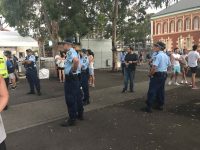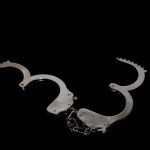Police Powers to Stop, Require Identification and Search in NSW

Being confronted on the street or pulled over by a police officer can be a nerve-wracking experience.
Even if you haven’t done anything wrong, you may feel concerned and anxious about how the situation will pan out, or even worried that you may have broken a law you didn’t know about.
Whether it happens while you’re on a stroll or after being pulled over, it’s important to know your rights during these anxious moments.
The LEPRA
Police powers to stop and search a person or vehicle are primarily contained in the Law Enforcement (Powers and Responsibility) Act (LEPRA) 2002.
The bill was introduced into NSW state parliament in 2001 with a view to consolidating the main powers of police into one piece of legislation.
The term ‘suspects on reasonable grounds’ is used throughout the LEPRA, and it means officers cannot conduct arbitrary or random searches of you or your vehicle – they must have some factual basis upon which to base their suspicion that you have done something wrong; such as committed an offence or have something illegal or dangerous on you or in your vehicle.
So when are you required to disclose your identity?
Part 3 of the LEPRA outlines the circumstances in which a person is required to disclose their identity after being approached by police, as well as the potential consequences for not doing so when lawfully directed.
Section 11 of the LEPRA provides that an officer may require identification if the officer holds a reasonable suspicion that a person can assist in the investigation of an ‘indictable offence’ (ie one which may be decided in a higher court) because they were in the vicinity of the incident..
Police can make the same request of someone they reasonably suspect has an apprehended violence order out on them.
Police can also require a person who is being given a direction to leave a public place to reveal their identity. Under section 197 of the LEPRA, police can require a person to leave a public area for a number of reasons – including where they’re harassing or intimidating others, or are suspected of supplying illegal drugs.
An individual is required to reveal their identity in all of these situations, and failure to do so, or providing a false name or address, can result in a fine of up to $220.
A person must also disclose their identity if suspected of committing an offence on a train or railway property, or if they are under 18 and suspected of consuming alcohol in public.
When you’re driving a car
An officer who has a reasonable suspicion that a vehicle was or is being used in connection with an indictable offence can require the driver, any passengers and the owner of the car (if the owner wasn’t driving) to reveal their identity.
Failure to disclose at this time, or the provision of false information, can result in a fine of up to $5,500 and/or 12 months imprisonment.
Section 19 of the Act says that police who require a person to reveal their identity may also request identification to prove it.
Drivers who are pulled up during a routine traffic stop are must provide their name and address upon request, and section 175 of the Road Transport Act 2013 requires drivers to produce their licence to verify this.
When your car has been involved in a traffic offence
Section 177 of the Road Transport Act gives police the power to require a ‘responsible person, or the person having custody of the vehicle’ to disclose the name and address of a driver where it is alleged that a person has used that vehicle during a traffic offence. This is known as a ‘form of demand.’
Police must inform the owner or custodian of the vehicle of the date and time of the alleged incident, and the registration number of the vehicle allegedly involved.
Failure to comply can result in a fine of up to $2,200.
A person is not guilty of failing to comply if they persuade the court that they did not know and ‘could not with reasonable diligence have ascertained the driver’s name and home address’
Face coverings
An amendment was made to the LEPRA in 2011 under the Identification Legislation Amendment Act, which led to the inclusion Section 19A that requires a person to remove a partial or full facing covering when asked by a police officer for the purposes of identifying them.
Failure to remove a face covering can result in a $220 fine, or if an individual is travelling in a vehicle, it can result in up to a $5,500 fine and/or 12 months imprisonment.
While this law applies to any type of face covering, including dark sunglasses, it was introduced after a Muslim woman wearing a niqab was pulled over.
Carnita Matthews was stopped by police for random breath testing. It was alleged that she subsequently reported that an officer tried to forcibly remove her face covering. She was charged with making a false statement, but successfully appealed her conviction, after a judge found there was not enough evidence that Ms Matthews had making the statement.
Search without a warrant
Part 4 of the LEPRA details when police have the power to stop, search and detain an individual without a warrant.
Officers can do so when they reasonably suspect that a person possesses stolen property, has anything used or intended to be used to commit an offence, is carrying a dangerous item or weapon, or is in possession of an illegal substance.
Police may seize and detain any of such items.
Police also have ancillary powers to order a person to open their mouth for the purpose of a search, and to shake their hair if they suspect something is being concealed within it. Failure to comply with this request can result in a maximum penalty of a $550 fine.
A person can also be searched in a public place or a school if officers have a reasonable suspicion that they’re carrying a knife or a laser pointer. An officer can confiscate such items, and failure to comply with the search can result in a fine of up to $5,500.
Searching a vehicle without a warrant
Police can stop, search and detain a vehicle without a warrant if they have a reasonable suspicion that it contains stolen items, has been used in an offence, is carrying anything used, or to be used, in an offence, or is carrying any illegal substances.
If a vehicle is in a public place or in the vicinity of a school, police can search it if they reasonably suspect it contains a dangerous item, or is putting the public at risk.
Officers can seize and detain any such items.
A vehicle can also be stopped by police if they have a reasonable suspicion it is carrying a person they have grounds to arrest and detain.
Failure to comply with such directions under these circumstances can result in a fine of up $5,500 and/or 12 months imprisonment.
The dreaded strip search
Under section 31 of the LEPRA, police have the power to carry out strip searches if they deem it necessary for the purposes of a search. This can be done at a police station or in any other place if considered it must be done urgently.
A strip search must be conducted in a private area by a member of the same sex. At no time should a person’s body cavities be searched, nor should a person be touched in any way.
No person should be present who is not needed for the purposes of the search, nor should any item of clothing be removed unnecessarily.
Strip searches must not be carried out on children under the age of 10.
So there you have it – a thumbnail sketch of the rules surrounding stopping, requiring identification and searching individuals and vehicles in NSW.
Going to court for a traffic offence?
If you are going to court for a traffic offence, call or email Sydney Criminal Lawyers anytime to arrange a free first consultation with an experienced, specialist traffic lawyer who will accurately advise you of your options, the best way forward, and fight for the optimal outcome in your specific situation.








